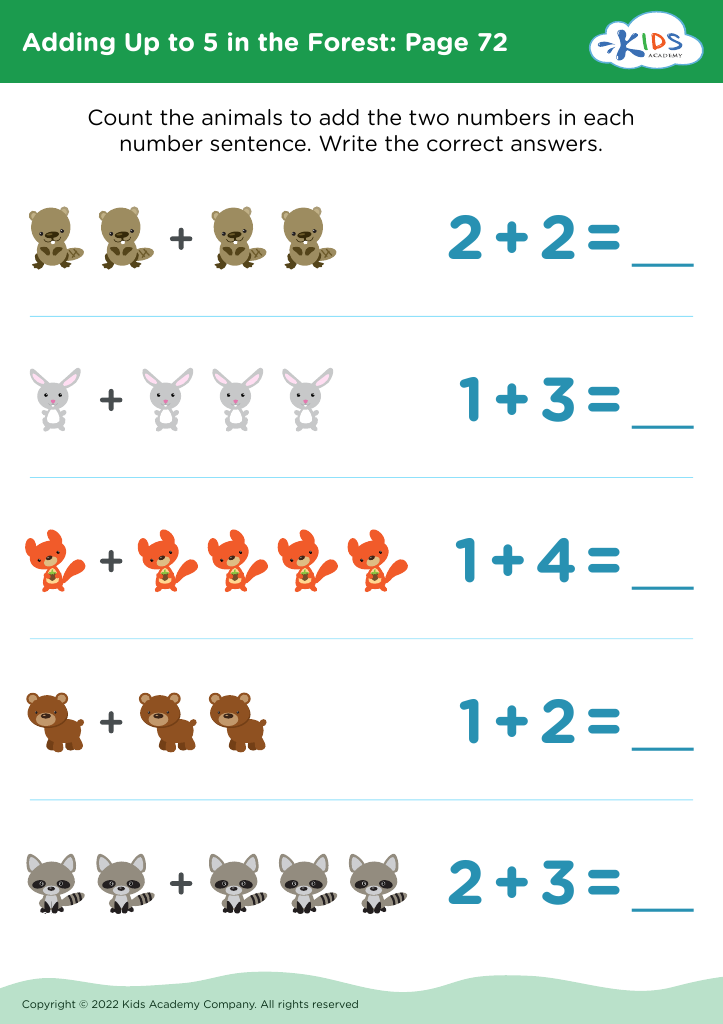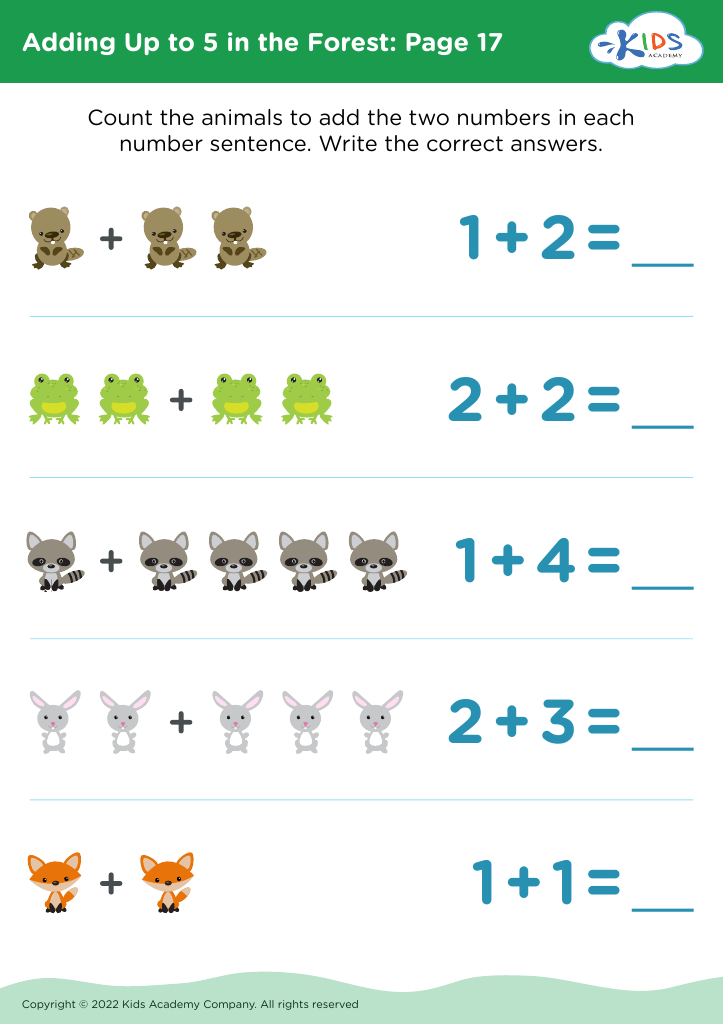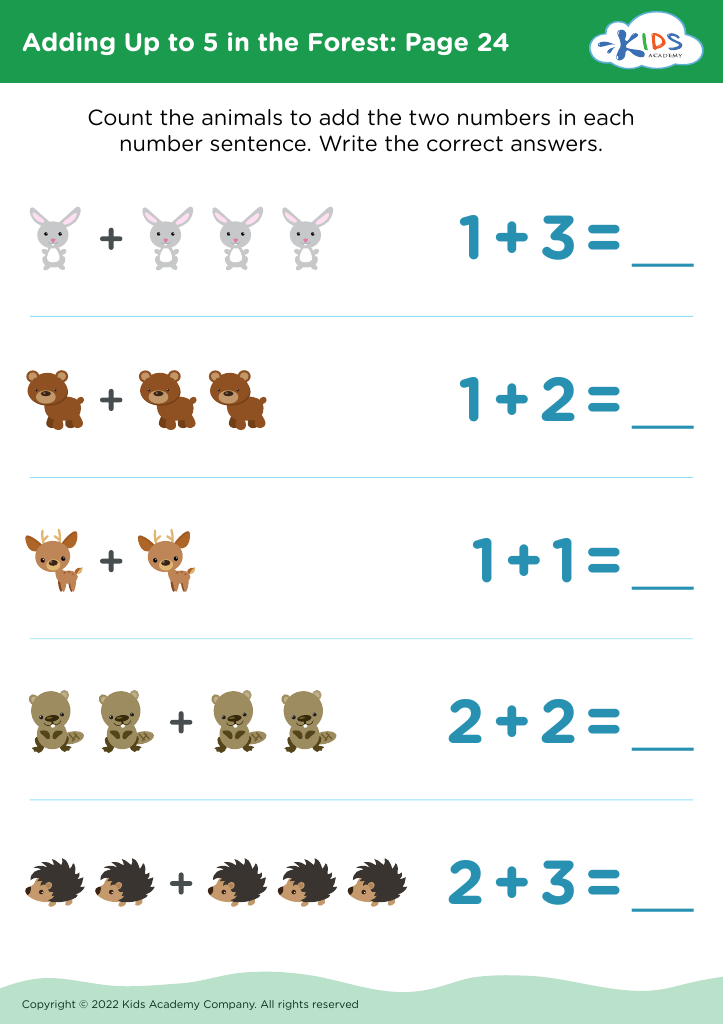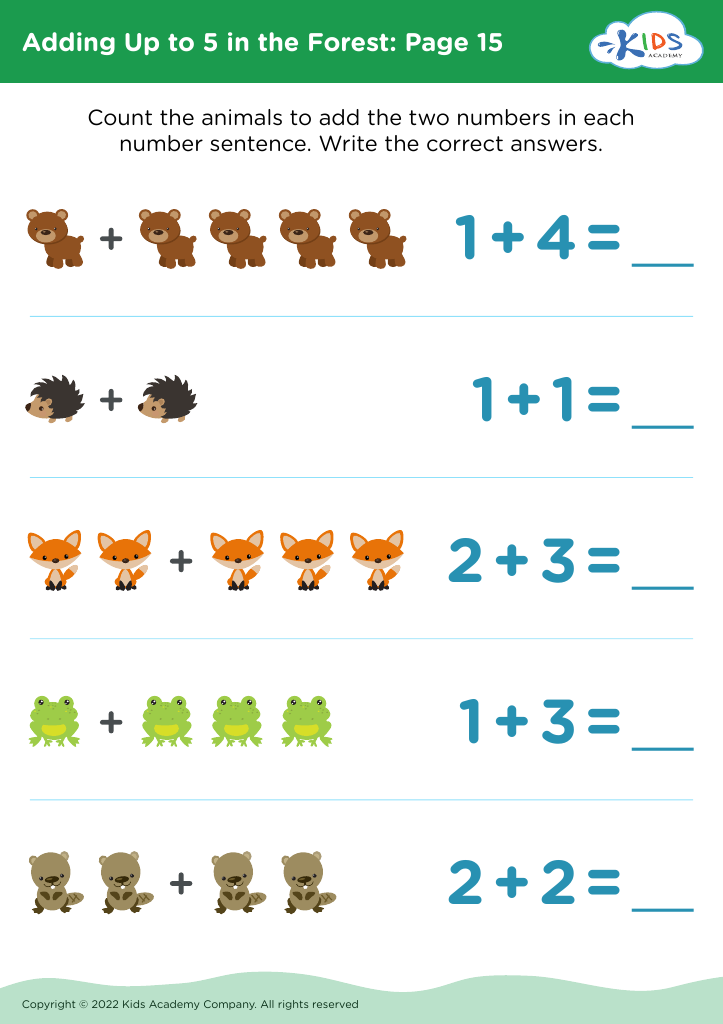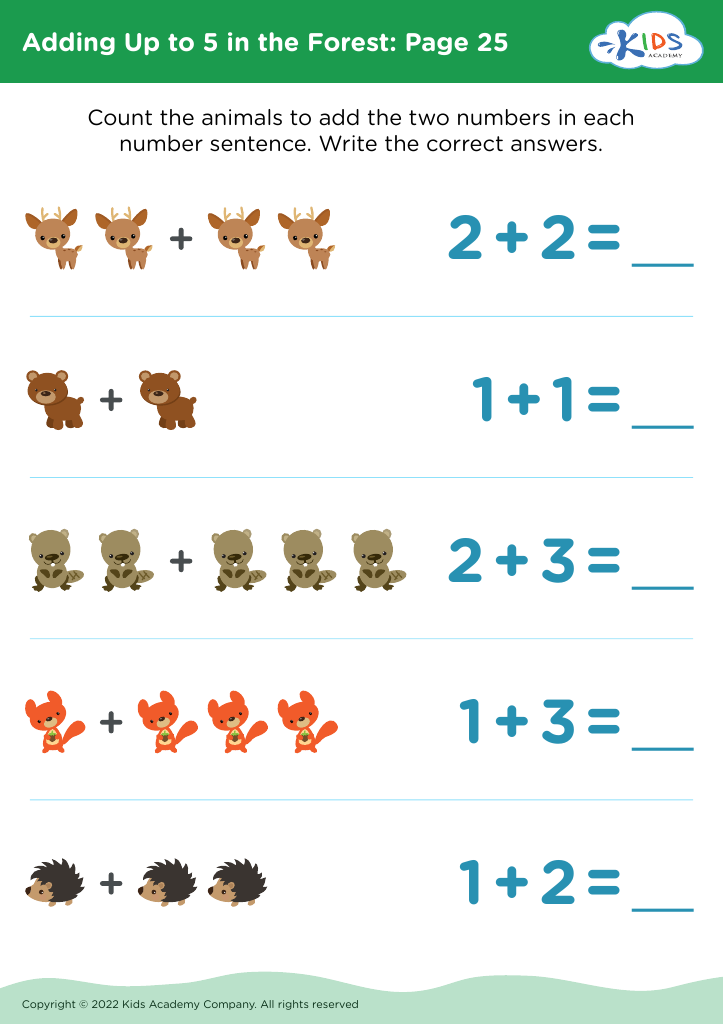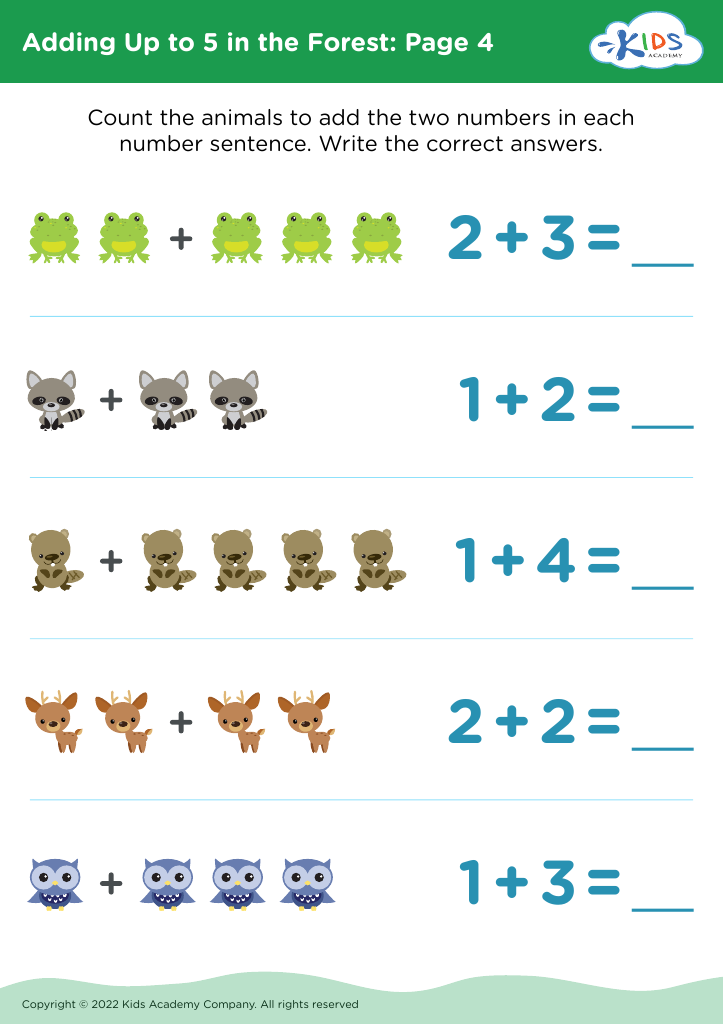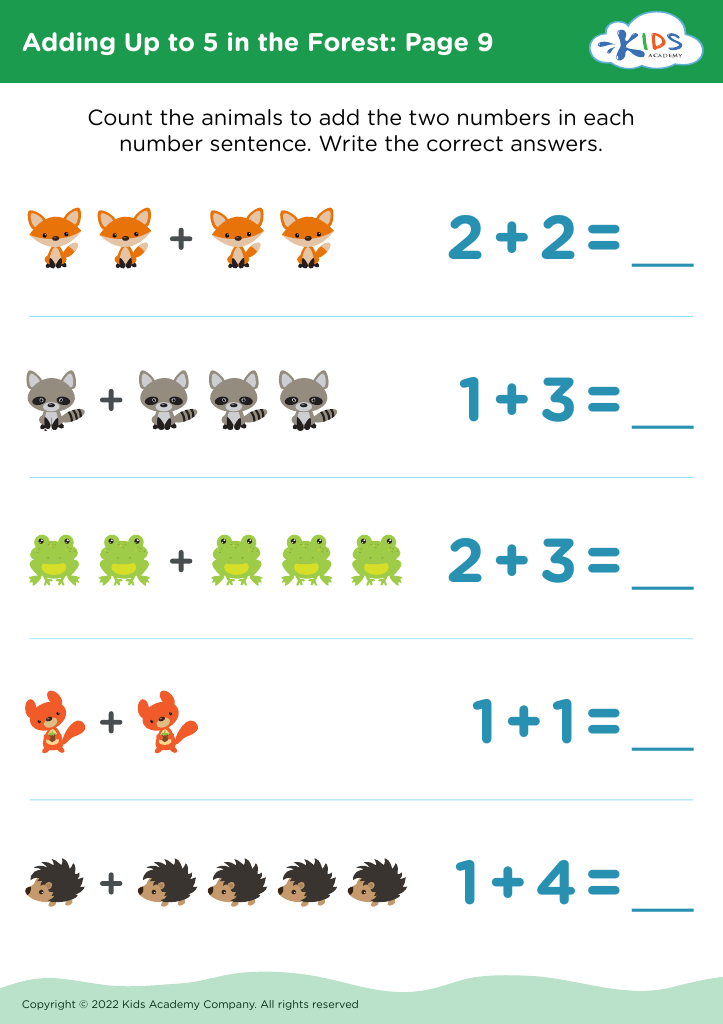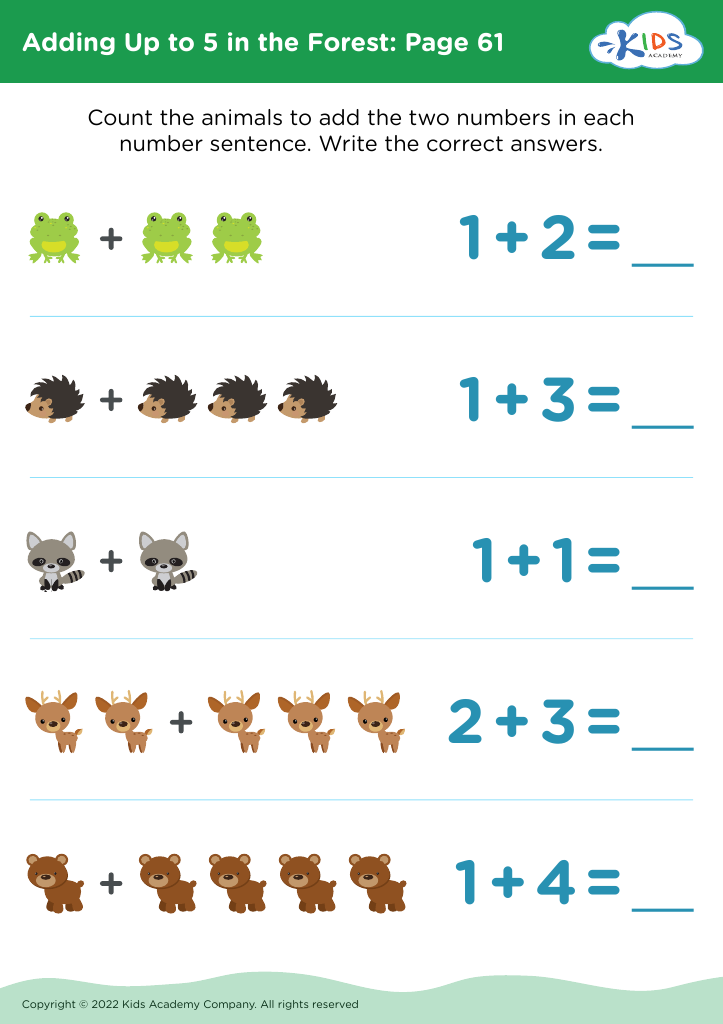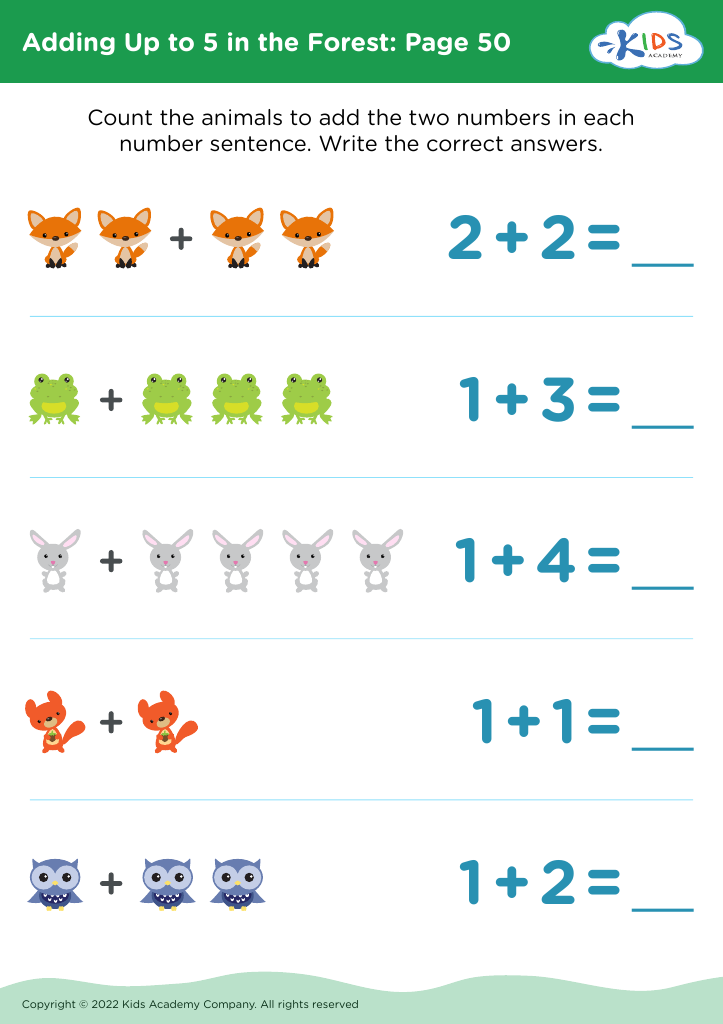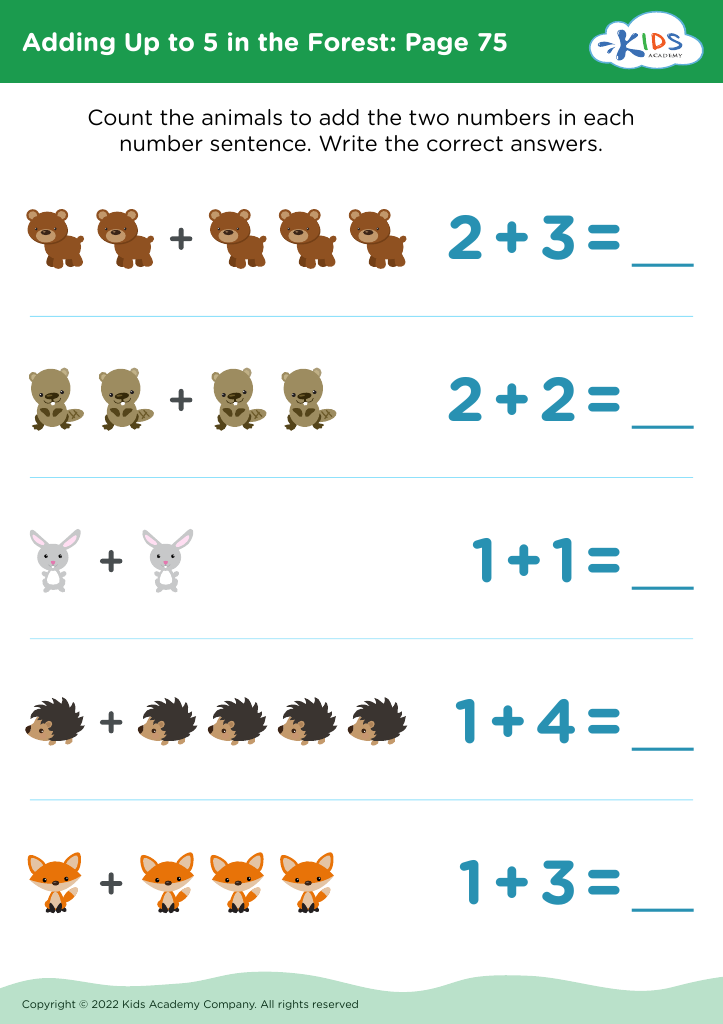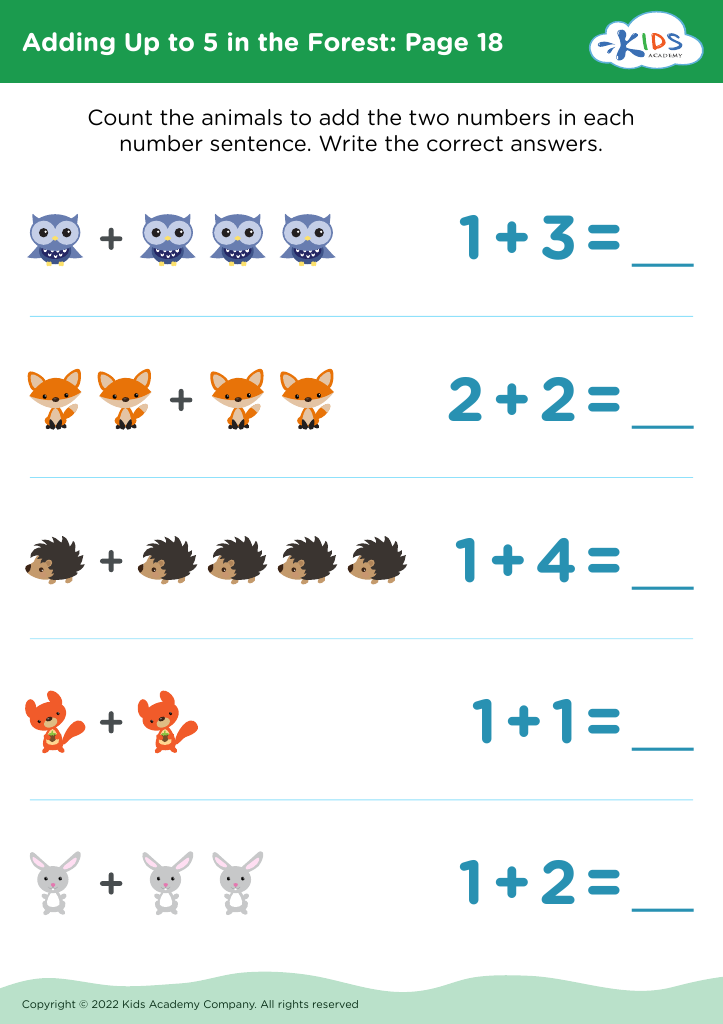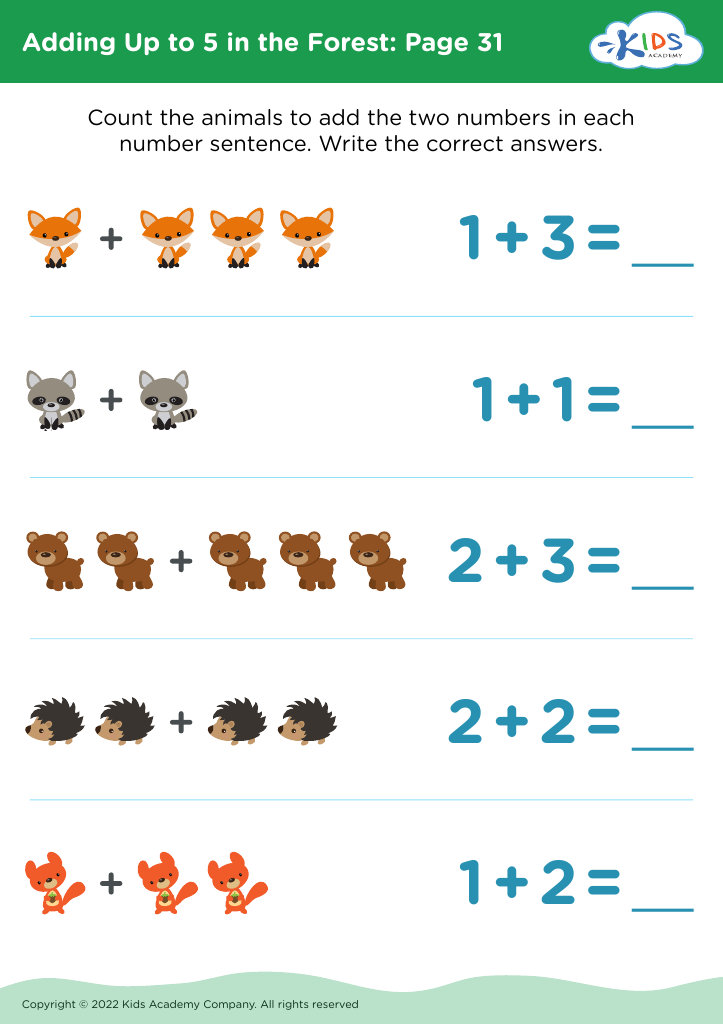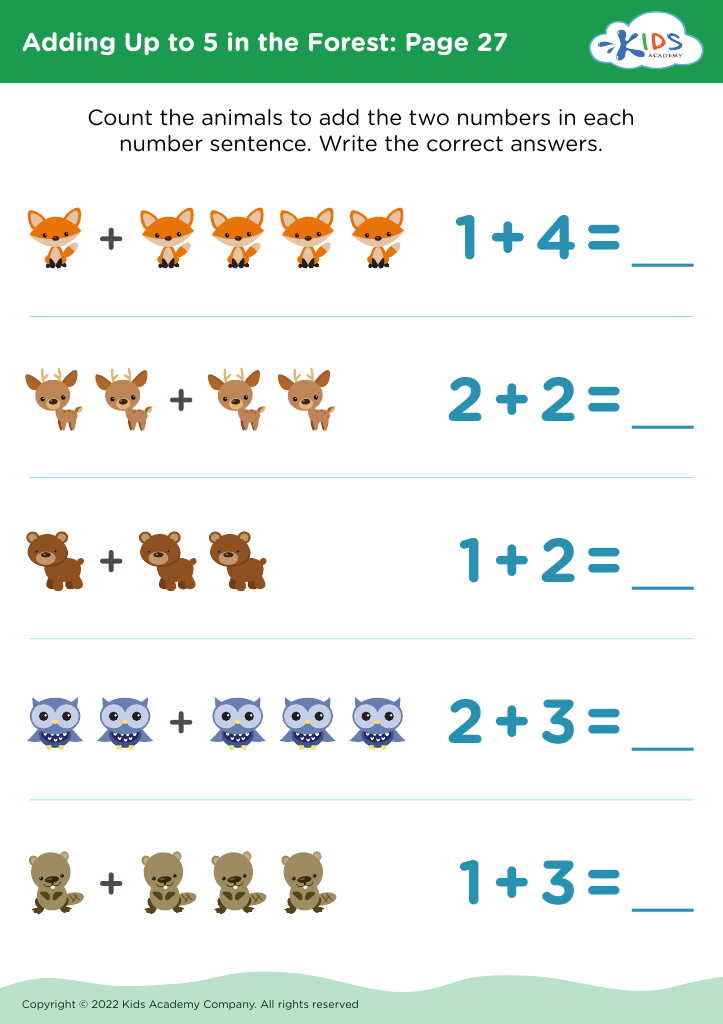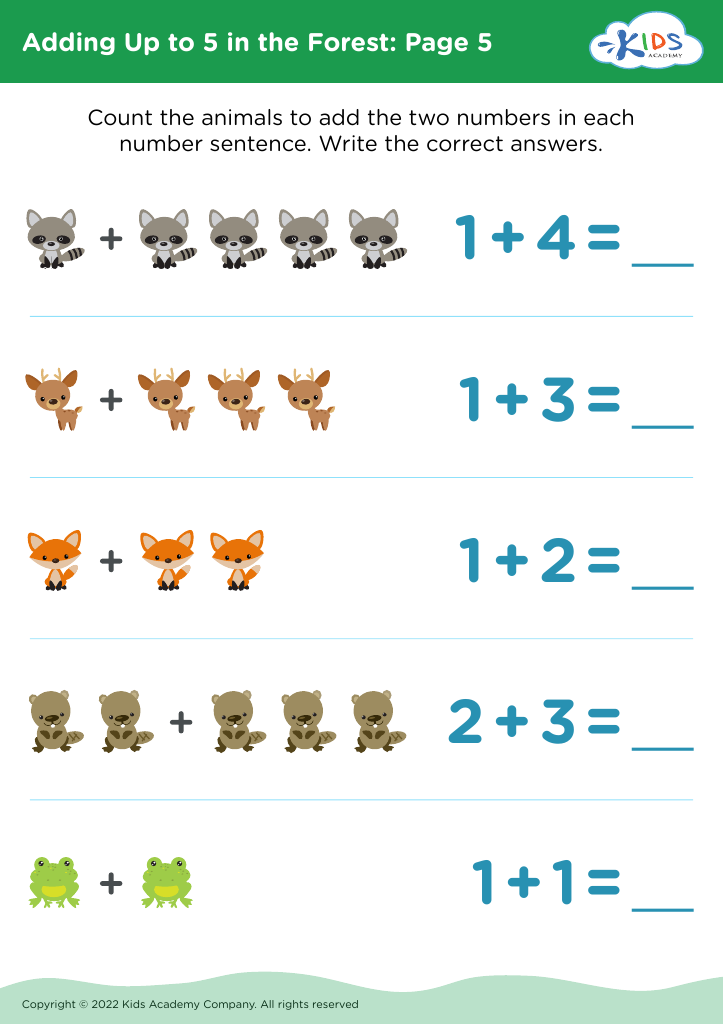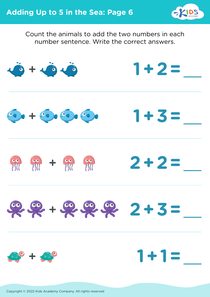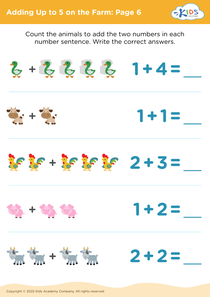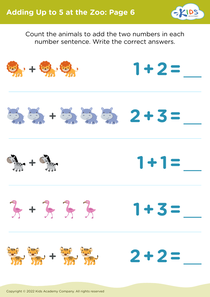Addition skills Adding in the Forest Worksheets for Ages 4-8
14 filtered results
-
From - To
Welcome to our "Addition Skills: Adding in the Forest" worksheets designed specifically for ages 4-8! These engaging and interactive worksheets provide a fun way for young learners to develop their addition skills in a vibrant forest-themed setting. Children will embark on an exciting journey through the woods, where they will encounter friendly woodland creatures while solving various addition problems. Our worksheets are perfect for enhancing early math skills, promoting critical thinking, and reinforcing numerical concepts through playful activities. Suitable for both classroom and home use, these resources will captivate young minds and assist them in mastering foundational addition concepts. Get started today!
Parents and teachers should prioritize teaching addition skills, particularly through engaging activities like "Adding in the Forest," for children aged 4 to 8. In early childhood, mathematical concepts build a foundation for future learning. Addition is a fundamental math skill that not only enhances numeracy but also fosters logical thinking and problem-solving abilities.
"Adding in the Forest" provides a unique and interactive way to learn. By incorporating nature and exploration, this approach makes math relevant and fun, encouraging children to observe and interact with their environment. Such activities stimulate curiosity and creativity while reinforcing basic addition concepts in an organic manner.
Moreover, improvement in addition skills contributes positively to a child’s confidence and attitude towards learning. Mastery of basic math can lead to better performance in school, reducing anxiety around future mathematical concepts.
Additionally, this skill nurtures collaboration among peers. Activities that involve sharing and working together help develop social skills while practicing addition. Therefore, both parents and teachers should care about fostering these skills early on, as the foundation for math competence is established in these crucial developmental years. Ultimately, fun and engaging initiatives can make a significant impact on a child’s educational journey.
